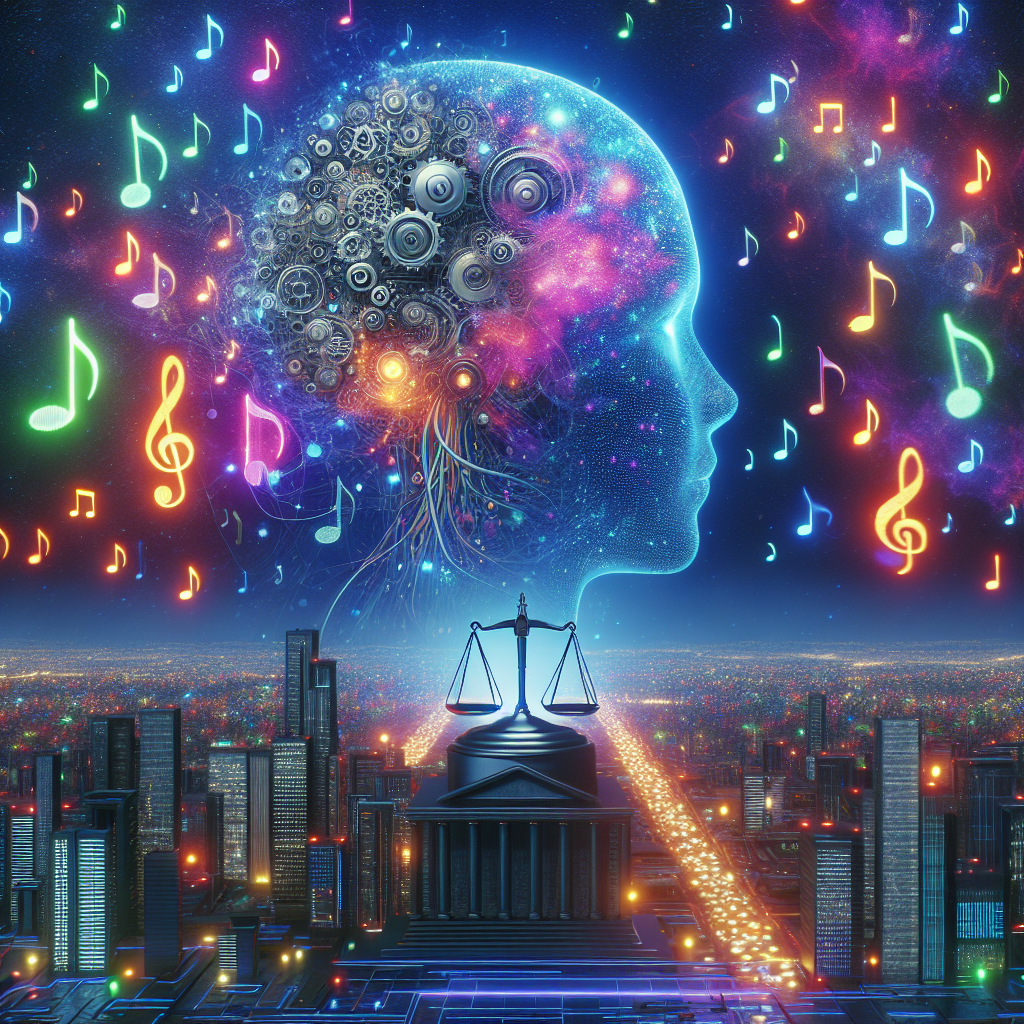In recent years, advancements in artificial intelligence (AI) have significantly impacted various industries, including the music industry. One of the key areas where AI is making a significant impact is in the realm of music copyright. With the proliferation of digital music platforms and the ease of sharing and accessing music online, issues related to copyright infringement have become increasingly prevalent. AI technology is being used to address these challenges and help streamline the process of managing music copyright.
AI and Music Copyright
AI has the potential to revolutionize the way music copyright is managed and enforced. One of the key ways in which AI is being used in this context is through the development of algorithms that can analyze and identify copyrighted music. These algorithms can help music rights holders to track and monitor the use of their music online, making it easier to identify instances of copyright infringement.
AI can also help to streamline the process of licensing music. By using AI algorithms to analyze music usage data, rights holders can gain valuable insights into how their music is being used and by whom. This information can help them to better understand the value of their music and negotiate licensing agreements with digital music platforms and other users.
Another way in which AI is impacting music copyright is through the development of tools that can help to protect music copyrights. For example, AI can be used to create digital watermarks that are embedded in music files and can help to track the use of copyrighted music online. These watermarks can help to deter copyright infringement and provide evidence of unauthorized use of music.
AI can also be used to help enforce music copyrights by identifying and taking action against infringing users. For example, AI algorithms can be used to analyze online content and identify instances of copyright infringement. Rights holders can then use this information to send cease and desist notices or take legal action against infringing users.
FAQs
Q: How does AI technology help to identify copyrighted music?
A: AI algorithms are trained to analyze music files and identify unique patterns and characteristics that are specific to copyrighted music. By comparing these patterns to a database of known copyrighted music, AI can accurately identify instances of copyright infringement.
Q: How can AI help rights holders to track and monitor the use of their music online?
A: AI algorithms can be used to analyze online content and identify instances where copyrighted music is being used without permission. Rights holders can use this information to track and monitor the use of their music online and take action against infringing users.
Q: How can AI help to streamline the process of licensing music?
A: By analyzing music usage data, AI algorithms can help rights holders to better understand how their music is being used and negotiate licensing agreements with digital music platforms and other users. This can help to streamline the process of licensing music and ensure that rights holders are properly compensated for the use of their music.
Q: How can AI technology help to protect music copyrights?
A: AI can be used to create digital watermarks that are embedded in music files and can help to track the use of copyrighted music online. These watermarks can help to deter copyright infringement and provide evidence of unauthorized use of music.
Q: How can AI help to enforce music copyrights?
A: AI algorithms can be used to analyze online content and identify instances of copyright infringement. Rights holders can then use this information to send cease and desist notices or take legal action against infringing users.
In conclusion, AI technology is playing a significant role in shaping the future of music copyright. By helping rights holders to identify, track, monitor, and protect their music copyrights, AI is helping to ensure that musicians and other creators are properly compensated for their work. As AI continues to evolve and advance, we can expect to see even more innovative solutions that will help to protect and enforce music copyrights in the digital age.

